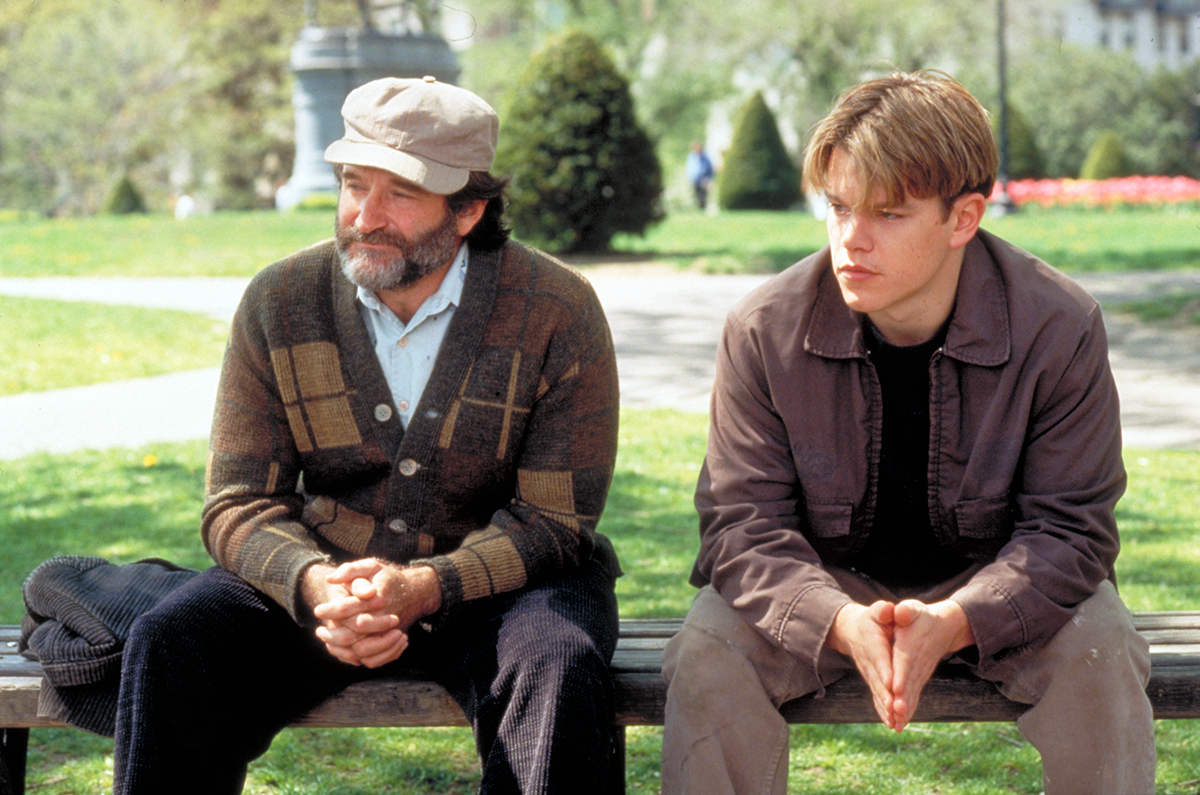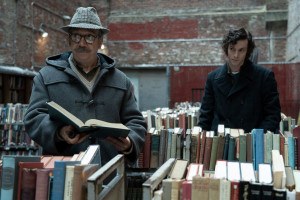A Conversation with Robin Williams

Robin Williams said his favorite scene from Good Will Hunting was when his character, Sean, talks to Will (Matt Damon) about his future while sitting on a bench in the Public Garden. / Image via Miramax
The life of comedic legend Robin Williams will undoubtedly be memorialized hundreds of thousands of times this week as the world contemplates the tragedy of his unfortunate, untimely death. And that’s for good reason, as he was a loving, extremely gifted man who brought so much joy to the planet even while wrestling with his own addictions. Looking back on his massive body of work, it’s clear that he was drawn to roles that allowed him to showcase the disparate facets of his personality; he could play both a bombastic genie and a contemplative therapist/straight man to a punk genius with wit and aplomb. His characters explored facets of life that seem simple in their context, yet stay with us even now: What does it mean to be a grown-up? What does living an inspired life look like? How do we make the most of our existence? Williams’ roles, even the comedic ones, dealt with humanity and aging and life and death in a manner that garnered accolades and affection worldwide. When he died Monday, it was like losing a loved one.
Williams won an Oscar for his role as Sean Maguire in Good Will Hunting, and two years ago, on the 15th anniversary of the film’s release, I had the chance to talk with him about what the film meant to him as I reported an oral history of the movie for the magazine. Our interview was arranged for the day after Thanksgiving, and I was admittedly nervous; I’d heard that he might be difficult or short with me on the phone, and that a successful interview would all be dependent on his mood. But I was fortunate: That afternoon he was thoughtful, contemplative, and sincere, and full of flashes of brilliance and humor as we spoke. The film’s success surprised him, he told me, and winning the Oscar was “surreal.” “The Oscar has a half-life of about a week,” he said. “For about a week everyone is like, ‘Hey there you won an Oscar!’ And then a week later, it’s like, ‘Hey Mork.’”
Williams told me his favorite scene in the film was the now-famous bench conversation in the Public Garden with Matt Damon, watching the Swan Boats as he harangued “the kid” about living a full life. “Where we shot, and how we shot it…it was just the idea of that kind of beauty and the experiences you have,” he said. “Telling the kid, ‘If you don’t get out and experience life, you’re not going to have that stuff, you’re not going to have anything. You have to pull your head out of your ass and experience this stuff.’”
Fifteen years later, he said people often stopped to thank him for making Good Will Hunting, a film he put in the same category as Awakenings and Dead Poets Society. “It’s something more than a movie, it’s something like an emotional experience” for people, he said. “The painful stuff comes because it’s spoken so simply. That’s kind of the beauty of it. The more intimate and personal it is, the more it touches people. The more honest you are, the more it reaches out.”
Monday night, shortly after hearing of Williams’ death, I found the recording of our conversation and listened to it again in a new light. Here was a man who has obviously struggled with his own demons throughout his life, yet he could look back on a role 15 years later and still revel in the wonder it brought to audiences. The full recording of our conversation is below; I’ve tagged it in a few of my favorite places, including our exchange in which we discuss the potential for a Good Will Hunting musical—he jokingly asked me to leave that off the record, lest he be accosted by would-be songwriters eager to pen the score. His honesty and candor as we spoke was almost disarming; here was the voice of a man so full of life and so sincerely appreciative of all that it offers, and now he’s gone. Robin Williams, we were so fortunate to know you.


